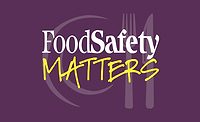Steve L. Taylor, Ph.D. currently serves as a professor in the Department of Food Science & Technology and founder and co-director of the Food Allergy Research & Resource Program (FARRP) at the University of Nebraska. Dr. Taylor received his B.S. and M.S. degrees in food science and technology from Oregon State University and his Ph.D. in biochemistry from the University of California - Davis. Dr. Taylor maintains an active research program in the area of food allergies.
Dr. Taylor initiated his professional interest in food allergies and sensitivities in 1980. His primary research interests involve the development of methods for the detection of residues of allergenic foods, the determination of the minimal eliciting doses for specific allergenic foods and their use in quantitative risk assessment, the assessment of the allergenicity of ingredients derived from allergenic sources, and the assessment of the allergenicity of foods produced through agricultural biotechnology. Dr. Taylor is heavily involved in outreach to the food industry on food allergies and sensitivities and has helped countless companies on a wide range of allergen-related topics.
Listen here and subscribe on Apple Podcasts | Stitcher | Google Play | Android
In this episode of Food Safety Matters, we speak to Steve Taylor about:
- Why the number of food allergen recalls in the U.S. appears to be climbing
- How U.S. regulations continue to lag behind in terms of setting allergy thresholds
- The discrepancy between consumer allergy management and the U.S. healthcare system
- The development of allergies in infants vs. adults, and how food allergies are less common outside the U.S.
- Why allergy avoidance is not always the best treatment for consumers with perceived food allergies
- Immunotherapies, mass spectrometry, and other forms of allergy treatment currently undergoing research
- His industry work and ongoing research with detection methods, and his involvement with Food Allergy Research & Education, and FARRP at the University of Nebraska
- Thoughts on how the U.S. Food and Drug Administration could help alleviate problems related to food allergens and product labeling
- The correlation between gluten-free foods and food allergens
- Whether or not food processors should have dedicated processing lines for foods made with allergenic ingredients
Related Content:
A Look Back at 2016 Recalls
Report from the National Academies of Sciences, Engineering, and Medicine: Recommendations to the Food Industry and Regulatory Agencies on the Management of Food Allergens (Feb/March 2017)
Steve Taylor, Ph.D., Receives Food Safety Magazine's Distinguished Service Award (2013)
Allergen Validation: Analytical Methods and Scientific Support for a Visually Clean Standard (Dec. 2011/Jan. 2012)
Ensuring the Safety and Quality of Fried Foods (June/July 2007)
Bakeries Rise to Food Safety and Defense Challenges (Aug/Sep 2006)
News Mentioned in This Episode
Food Safety Pioneer Dave Theno Dies at 66
Bernard and Bennett to Receive Food Safety Magazine's Distinguished Service Award
3.7 Million Pounds of Recalled Meat Products Linked to One Breadcrumb Supplier
Clemson Studies Stress Responses of Foodborne Illness and the Impact on Food Safety
New EU-China-Safe Project to Focus on Food Fraud
EU Commissioner for Health and Food Safety Dr. Vytenis Andriukaitis Speaks with Food Safety Magazine
Food Allergen Handbook and Best Practices for Food Allergen Validation & Verification Request
These food allergen handbooks were created in collaboration with the University of Nebraska’s Food Allergy Research and Resource Program (FARRP) to help companies understand and develop food allergen controls. Topics covered include:
Food Allergen Handbook
- Why test for food allergens?
- Testing methods and how they work
- Sampling guidelines
Best Practices for Food Allergen Validation & Verification
- Cleaning to a validated standard
- Migrating from validation to verification
- Where to test
Download Allergen Handbook Now



